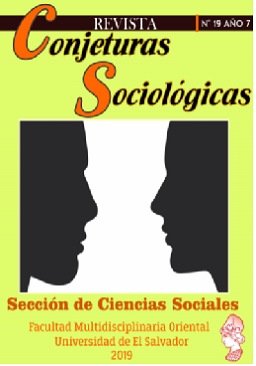La pedagogía y la formación metodológica: superar los malos aprendizajes
Keywords:
Pensamiento crítico, epistemología, teoría y praxis.Abstract
Este artículo propone abrir la reflexión acerca del pensamiento crítico y sus epistemologías diversas a partir del rechazo al subjetivismo positivista y hermenéutico apostando por la metodología de la praxis. Si bien es cierto que el ángulo de la mirada es central en las visiones de la realidad, también es incuestionable que las representaciones y abstracciones surgen de ne¬cesidades e intereses prácticos de las clases y agrupaciones sociales en lucha produciendo, reconociendo y circulando sentido en discursos que atraviesan las representaciones de la vida social desde lo material. In¬vestigar la realidad desde la práctica, sin descuidar la subjetividad, es el desafío de las disciplinas sociales. La subjetividad es parte del proceso objetivo que se elimina perpetuamente a sí misma. Reconoce que ni la contingencia, ni la discontinuidad son incompatibles con la histo¬ria, pero tampoco desestima las formas de continuidad o de ruptura del poder. La contingencia y la discontinuidad son el centro de la historia y el verdadero proyecto emancipatorio es darle a la humanidad los medios de una auténtica autodeterminación. Hacemos un examen acerca de la ausencia de investigación y los obstáculos y limitaciones académicas en los estudios sociales en extensas regiones de América Latina y apostamos por colocar la investiga¬ción como centro de la formación del individuo universitario y popular, integrando sujeto y objeto, teoría y praxis, con una orientación autónoma, crítica, creativa y transdisciplinaria e interepistemológica, articulando la actividad investigativa a la reflexión teórica. Los sujetos nece¬sitan conocer la materia que está transformando y acceder a la verdad y al verda¬dero conocimiento emancipatorio. De allí que el verdadero sujeto de la historia sea la realidad social en movimiento, donde la lucha de clases y la materialidad de los hechos históricos pueden articular diferentes procesos de mediación totalizadora y contingente. Serán los procesos de articulación contingente los que constituyen el tema de los estudios históricos. Cada estudio particular, si es serio, hará avanzar la teoría y abrirá campos del conocimiento. La interpretación crítica debe aceptarse como un importante momento del proceso del conocimiento-transformación del mundo. Pedagogy and methodological training: overcome bad learning This article proposes to open the reflection on critical thinking and its diverse epistemologies starting from the rejection of positivist and hermeneutical subjectivism betting on the methodology of praxis. While it is true that the angle of the gaze is central to the visions of reality, it is also unquestionable that representations and abstractions arise from practical needs and interests of the social classes and groups in struggle producing, recognizing and circulating meaning in speeches that go through the representations of social life from the material. Investigating reality from practice, without neglecting subjectivity, is the challenge of social disciplines. Subjectivity is part of the objective process that perpetually eliminates itself. It recognizes that neither contingency nor discontinuity are incompatible with history, but neither does it underestimate the forms of continuity or rupture of power. Contingency and discontinuity are the center of history and the true emancipatory project is to give humanity the means of authentic self-determination. We make an examination about the absence of research and the obstacles and academic limitations in social studies in large regions of Latin America and we bet to place research as the center of the formation of the university and popular individual, integrating subject and object, theory and praxis, with an autonomous, critical, creative, transdisciplinary and inter-epistemological orientation, articulating the research activity to the theoretical reflection. The subjects need to know the subject that they are transforming and access to truth and true emancipatory knowledge. Hence, the real subject of history is the social reality in movement, where the class struggle and the materiality of historical events can articulate different processes of totalizing and contingent mediation. It will be the processes of contingent articulation that constitute the subject of historical studies. Each particular study, if it is serious, will advance the theory and open fields of knowledge. Critical interpretation must be accepted as a moment of the process of knowledge-transformation of the world.Downloads
References
Bonilla-Molina, Luis Apuntes para la reconstrucción de la historia de las pedagogías críticas, Zamora, Michoacán, México. 2019
Borón, Atilio, Prologo a “La revolución contemporánea del saber y la complejidad social: Hacia unas ciencias sociales de nuevo tipo”, Pedro Luis Sotolongo Codina y Carlos Jesús Delgado Díaz, CLACSO, 2006.
Brenner, Miguel Andrés, Innovación educativa: el "neuroneoliberalismo" pedagógico político, Rebelión, 8/06/2019)
Farrán, Roque ¿Qué es lo real? La filosofía como arte de lucha y práctica de libertad / Publicada en Lobo Suelto, marzo 2019
González Rey, Fernando “Marxismo, subjetividad y psicología cultural histórica: avanzando sobre un legado inconcluso”, Teoría y Crítica de la Psicología 7 (2016), pp. 40-55. http://www.teocripsi.com/ojs/)
Kosik, Karel Gramsci y la filosofía de la praxis, 08-12- 2018, http://www.espai-marx.net/es?id=10759).
McLaren Peter / Petar Jandric La pedagogía crítica revolucionaria se construye al andar: en un mundo donde muchos mundos coexisten, https://herramienta.com.ar/articulo.php?id=3007)
Marx, Karl., Elementos fundamentales para la crítica de la economía política, Siglo XXI, Madrid, 1975, pp. 428-433.
Miras Albarrán, Joaquín Por qué es fallida Historia y Consciencia de Clase, del «joven» Lukács. http://www.espai-marx.net/ca?id=10762. 2019
Ribeiro, Silvia Por qué interesa el debate sobre ciencia y tecnología, La Jornada, 13 de Abril de 2019
Velázquez Barriga, Lev M. Maestros, nuevas disputas y otros desafíos, La Jornada, 16 de mayo 2019.
Downloads
Published
Issue
Section
License
Copyright (c) 2019 Jorge Lora Cam

This work is licensed under a Creative Commons Attribution-NonCommercial 4.0 International License.
Los autores continúan como propietarios de sus trabajos, cediendo de manera no exclusiva los derechos de difusión a la Revista Conjeturas Sociológicas bajo los estándares de la Licencia Creative Commons Atribución No Comercial 4.0 Internacional (CC BY NC 4.0).





